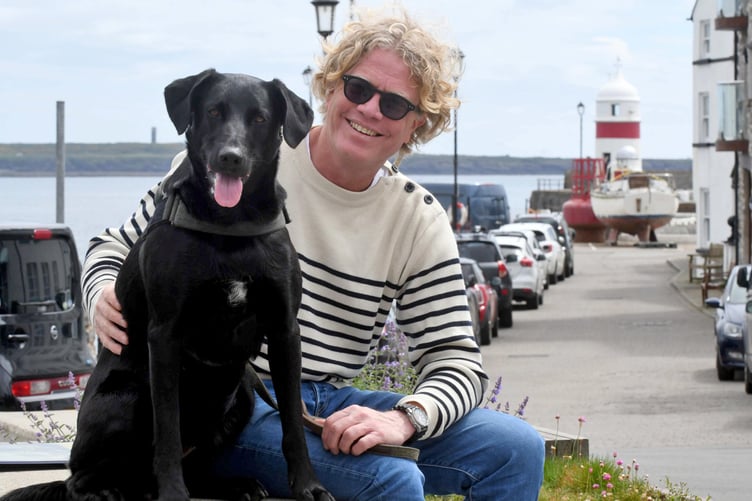A company founder feels the government should consider more alternatives to fossil fuels as wind turbines can be harmful to the environment.
Jeroen Wats is chief innovation officer at ExoTechnologies, a ‘next-generation’ solutions and investment company.
He says that the wind turbine blades are damaging to the environment as they are not completely recyclable.
This is because they are made from glass fibre, which is a lightweight material that is strong, durable and resistant to heat and chemicals.
Globally, between today and 2050, 43,000,000,000kg of wind turbine blades will end in landfill.
Mr Wats calls glass fibre ‘the asbestos of today’.
The government announced earlier this month that it would be using solar and wind power to generate more of the island’s electricity.
Mr Wats said: ‘It’s worth applauding that we’re doing something in terms of greener energy. We are a biosphere and still depending very much on oil and gas and we’re making a massive carbon footprint.
‘But you can be smarter than that. The process of making these blades still involves glass fibre.’
He explained that the blades are engineered to work for about 20 years but usually need to be replaced within seven to eight years due to damage, usually resulting from storms.
‘There are two companies in the world that can recycle the blades but the problem is glass fibre is not totally recyclable,’ Mr Wats said. ‘If you put glass fibre through a recycle process it will lose mechanical properties which means that you make something less strong than it was initially engineered for.
‘For example, from the wind turbine blades you can make a desk and your desk can make something else, so you can downgrade it.’
He added: 'For wind, we have innovated a sustainable, recyclable and even circular composite: DANU. With that innovation we have launched, in collaboration with Police Scotland, the first fully recyclable power boat last year that can be completely recycled at the end of its life, so the materials are from nature and so strong that you need considerable less than glass fibers.
'The benefit is that at the end of life you can separate the materials from each other and use them forever, so it means you never throw anything away.
'From the wind turbine blade, you can make a helmet and from the helmet you can make a boat, from the boat you make a wind turbine blade, you make this a desk, from this you make a wind turbine blade.
'So there’s no ecological side effect.'
He suggested tidal as a good alternative to fossil fuels, saying: ‘For wind, 30% of kinetic energy is transformed into electricity. It’s green but there’s a side effect and that is the glass fibres.
‘For tidal, 80% of the kinetic energy is projected into electricity. It works very well. If you go to the Point of Ayre, Langness or the Calf of Man the tides are very strong.
‘It is considerably maintenance-free and it’s predictable.
‘If we want to be the master of our own destiny as a biosphere, we need a green solution that is affordable.
‘I sail a lot during the summer and oftentimes there’s no wind. How do we use the turbines if there’s no wind? And when the wind turbines are not working due to too much or no wind, energy storage is crucial to cope with the peak electricity consumption.
‘We know when the tide comes in and out.’
He added: ‘I’m not against wind at all and I encourage the government to work towards alternative energies, but there’s more to consider.
‘It would be nice to see the Isle of Man being a pioneer in real green technology. I would love to sit around a table with someone from the government to talk about these solutions.’





Comments
This article has no comments yet. Be the first to leave a comment.